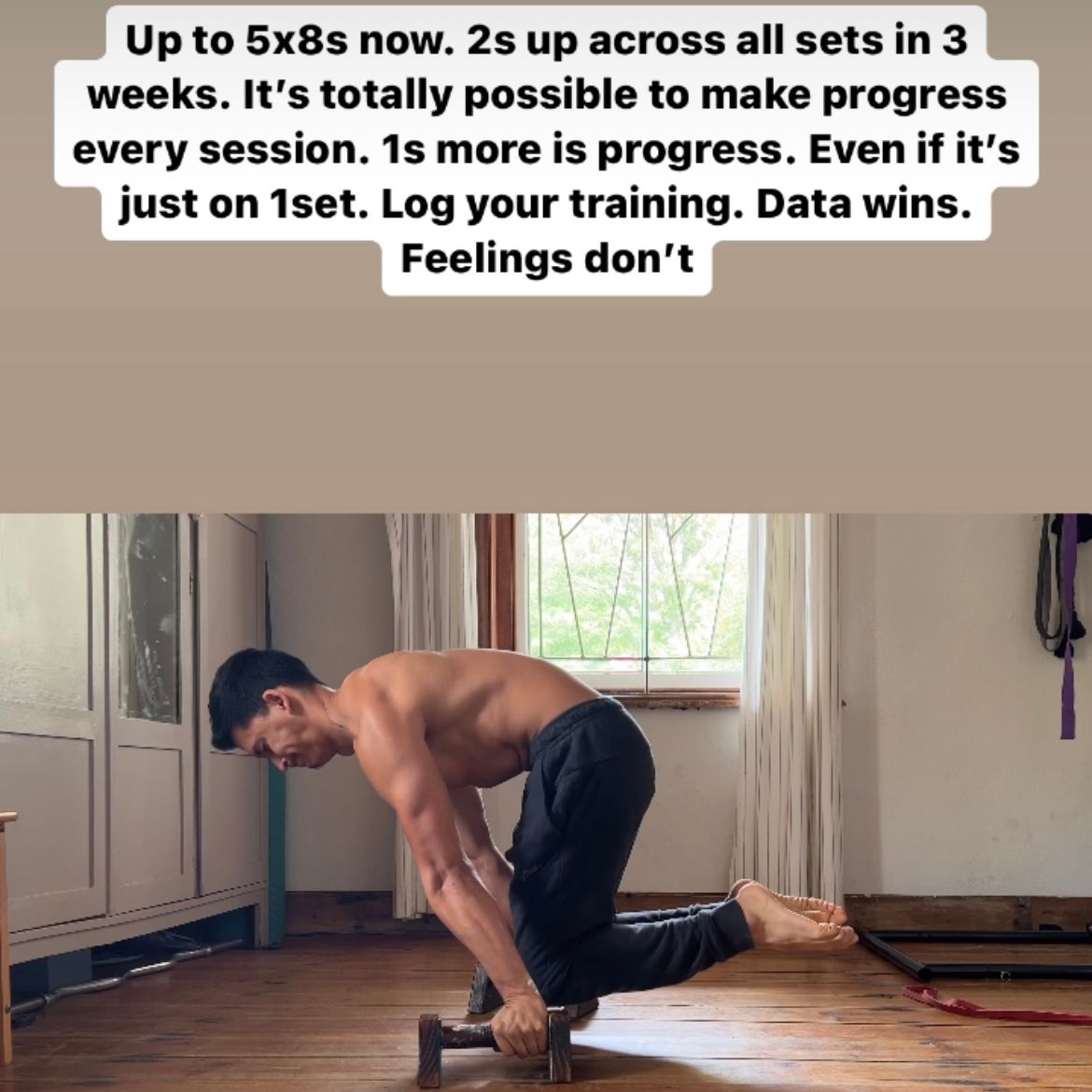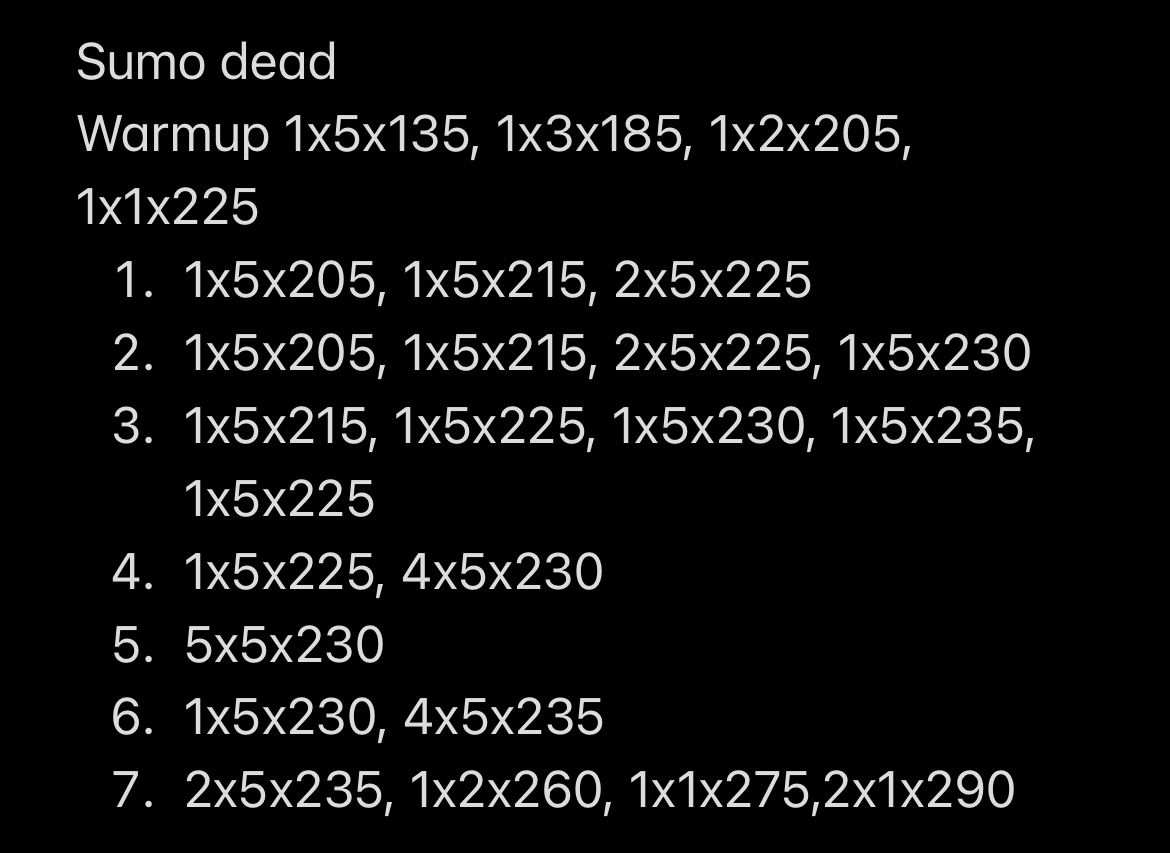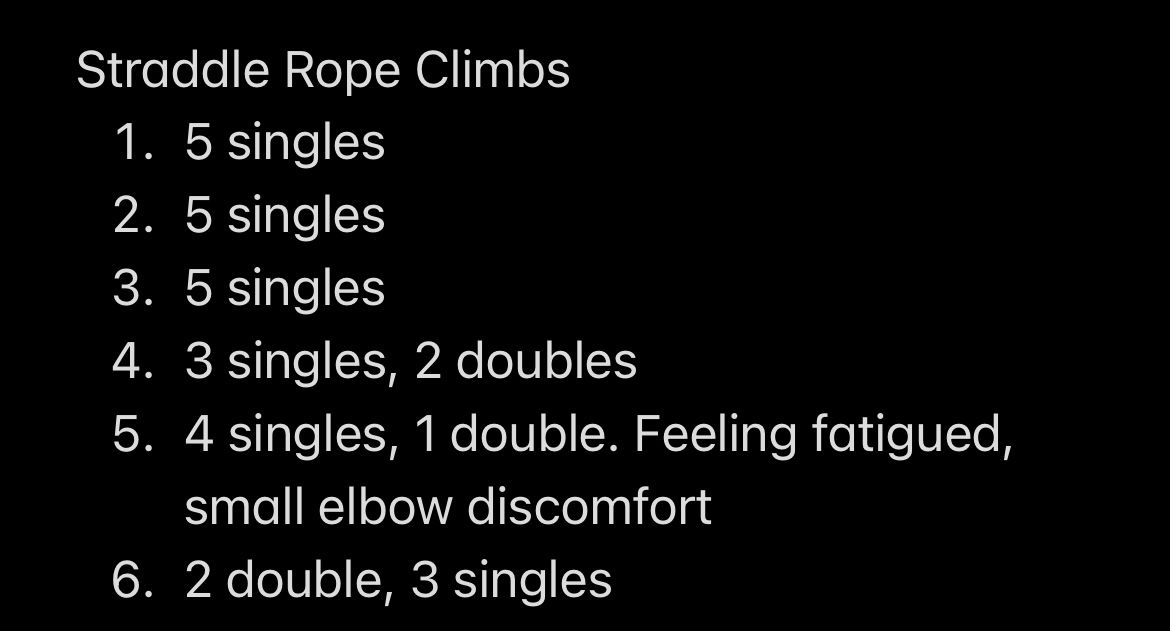The Importance of Logging Your Training

The purpose of this blog is to discuss the importance of logging your training, 3 reasons why, what to log, and 3 examples of how I log my training.
"There are two kinds of people: Those who like to win, and those who like to win arguments. They are never the same" - Nassim Taleb
The internet these days is filled with arguments about which program is best, which training split to use, which platform will give the best results, which coach will get you to your goals the fastest, which rep range, which exercises, and the list goes on and on.
But the honest truth is that progress and results lie in YOUR hands, not in the hands of your program, coach, or training buddies.
I've personally made progress on every single program that I've ever been on. Whether it was a cookie cutter program purchased online, a highly tailored program written by a coach, or whether it was a random program I found on a Reddit forum. Progress was made on each.
There are many reasons why that may be the case. But if there's one thing I'm certain of, it's that logging my training every session of every week has not only ensured, but guaranteed, that I make constant progress.
How can you not move closer to your goals if week after week you had real life data that clearly showed movement in the positive direction. Data always wins, feelings don't.

3 Reasons Why
This list is endless, but here's 3 that I put value into.
-
You'll forget: If you can't remember your partners anniversary, what makes you think you'll remember what you squatted 5 weeks ago?
-
Future programming decisions: This was a big one for me. In my first serious training cycles I tried to train for 8-10 weeks before deloading, but I noticed that I would get cranky, irritable, annoying to family members, and ravenous for food around 7-8 weeks in. Since they were my first serious training cycles, I had no idea how serious training affected our nervous system. At this time I was also new to logging my training, so I used to log these "weird" feelings". After a few training cycles of this, I saw a trend in my notes. I felt like shit after 7-8 weeks of intense training. From then on I moved to deloads every 6 weeks and the "shit" feelings dissappeared. There's more to unpack here, but you get the gist.
-
Insight into your response to training variables:
Who is it for?
If you have a training goal in mind, then logging and measuring training is for you. It's that simple. If you don't have a goal in mind and go to the gym "to get some moving in" then don't bother. It isn't for you. You're working out, not training. It's that simple.
It doesn't matter you're a complete beginner new to lifting, and it's your first time stepping foot in a gym. Logging training is for you.
In fact, there's nothing more rewarding than being a complete noob and seeing your numbers fly up from week to week!
If you're an advanced lifter working towards very specific goals, then logging your training is not only necessary, but CRUCIAL. The more advanced you are, the slower the progress can be. Having data that shows that you're progressing can help you stay accountable and true to your goal.
What To Log and Examples of Mine
How you log your training should be unique to you and your style.
Remember being in grade school and being forced to take notes in a particular way...that you hated? Yeah, I do. Scribble things down in your own way, that'll be the most sustainable. In a notepad the old school way, in an app, or in your cell phone's notes like I do. They all work.
However, there are a few key parameters that MUST make it to your training log.
The date, the week in your training cycle, the exercise, the sets and reps completed, the weight lifted, and anything of else significance.
Significant things include: PR's, failures, injuries, programming decisions that worked/or didn't work...etc. Significant things.
Below is one of my logs for sumo deadlifts. The date and training cycle were logged at the start of the note page.

Training logs work just the same for bodyweight skills. Below is a training cycle that included rope climbs as the primary pulling movement.

And the same goes for flexibility training and isometrics.

Conclusion
At the end of the day, if you're serious about your training, then it's crucial to log your training. Progress is YOUR responsibility, not anyone else's. Take accountability of your gains by keeping a rigorous training log. This goes for all training. Strength training, flexibility training, handstand training. Document the important details. Revisit it as often as you need to, and utilize it to make strategic decisions in your training and programming. Make it a habit and you'll reap the benefits!

If you enjoyed this article, I encourage you to subscribe to my weekly newsletter, The Sunday Spread, where I share free resources, training tips, discounts on my coaching services, student highlights, as well as my personal interests like podcasts, books, and worthwhile videos. You can sign up by hitting the button below!



